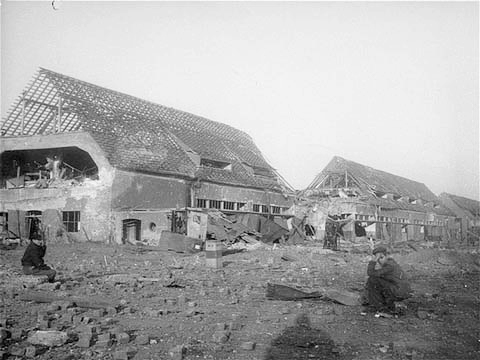François Le Lionnais, born in Paris in 1901, was a chemical engineer, chess enthusiast, and unrelenting polymath. He mounted a remarkable career in the public service of science and mathematics, working in various capacities for UNESCO, Musées Nationaux de France, and France’s national public broadcasting service, and writing or editing several publications on contemporary mathematical thought. In 1960, with his friend Raymond Queneau, Le Lionnais founded the Oulipo (Ouvroir de Littérature Potentielle), of which he served as president until his death, in 1984.
In 1944, for his participation in the French Resistance throughout the early 1940s, Le Lionnais was arrested, tortured, and deported to Dora-Mittelbau, via Buchenwald, where he spent several months building guidance systems for V2 missiles—often faultily. Shortly before the camp was liberated by the U.S. army, he and three others escaped the Nazi death marches and fled to the neighboring town of Seesen, where they spent the following weeks helping to organize shelter, medical care, and repatriation services for their fellow inmates. Le Lionnais also oversaw the production of a journal called Revivre!—“To live again!”—of which a single issue was printed on a commandeered German printing press.
The following memoir of Le Lionnais’s time at Dora first appeared in the Lyons-based journal Confluences in 1946. This is, as far as I know, its first English translation, and it is presented humbly, with all its author’s original rights reserved.
—Daniel Levin Becker
For Henri Seeliger,
recalling the joy of being reunited
*
It happened one morning during a routine assembly. We were some thousands of prisoners, idling at the calling point while they went about a general inspection.
My gaze fell reflexively upon the hill that rose beside the infirmary, where autumn was finishing its own occupation. Without warning, the great bare trees dissolved before me and carried me away with them. All at once the Hell of Dora mutated into a Brueghel, for me alone. Encouraged, no doubt, by the mental and physical exhaustion all of us felt, an intense rapture took hold of me: the sense of escaping, as a wisp of smoke could have, from under the watch of my idiot wardens. The euphoria did not last long.
It was long enough, however, to allow me to withstand the volley of slaps and blows (another example of the expressive superiority of the vernacular over academic language: wallops is the correct word) I received when my turn came to be searched.
I knew then that I was being summoned once more by the call of a bygone passion. I had to relearn it, though. It was in my block that my reeducation would take place.
Our blocks were...
You have reached your article limit
Sign up for a digital subscription and continue reading all new issues, plus our entire archives, for just $1.50/month.
Already a subscriber? Sign in





